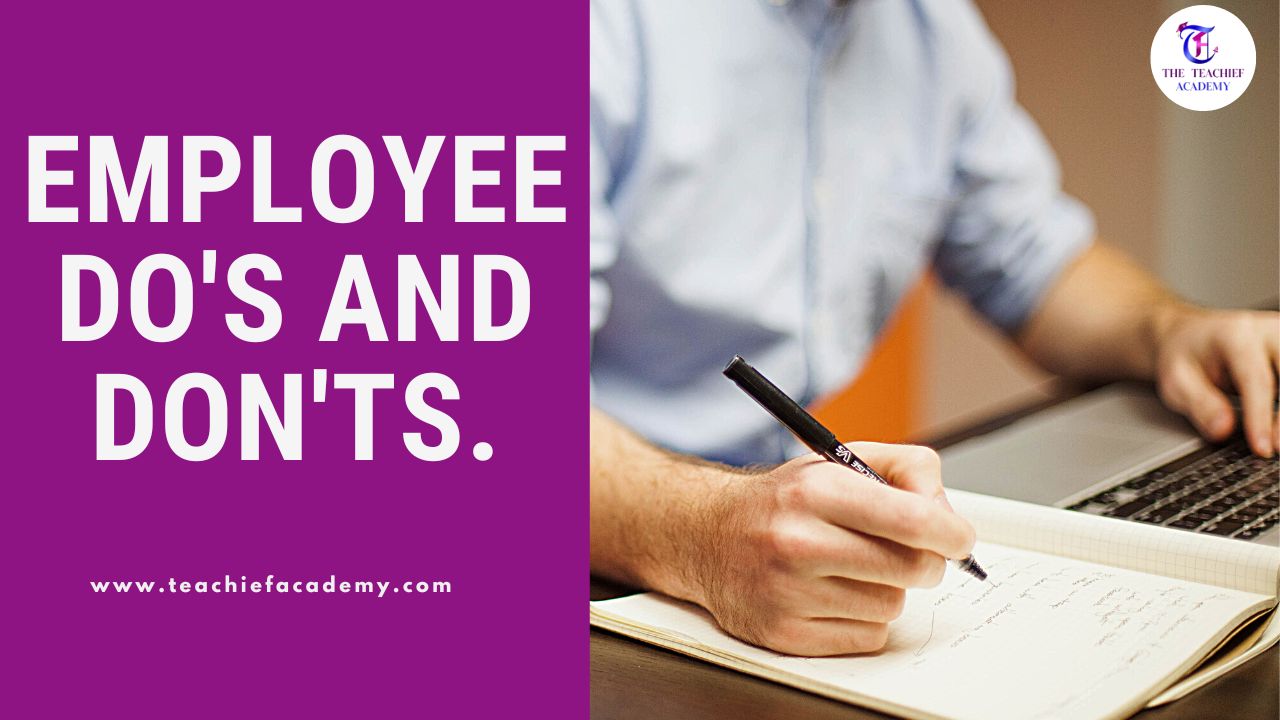Employee do's and don'ts.
An employee must respect and abide by the employer’s regulations and guidelines since it gives the employer the peace of mind that both their employees and the workplace are practical, responsible, and accountable. Additionally, it fosters an atmosphere of respect and trust between the employer and employees. For workers, it makes sure they are aware of the organisation’s expectations, is familiar with the guidelines, and can adhere to them. Furthermore, employees must be punctual and arrive on time at the workplace since it shows respect to the employers for their time and work. Being able to appear on time also showcases responsibility and dependability, two traits that businesses value in prospective workers.

Employee Do's
Furthermore, an employee must be proactive and be able to take the initiative in the workplace. Doing this may ensure that duties are carried out correctly and efficiently and raise the general mood in the office. Employees’ careers can be advanced by showing a desire to take on additional responsibility and initiative by exercising initiative and being proactive. Additionally, assuming responsibility and being proactive may contribute to the development of a productive workplace where workers are inspired and motivated. Moreover, exercising initiative and being proactive at work may result in higher job satisfaction and professional success. Also, an employee must maintain a positive relationship with his/her colleagues and customers. Doing so has numerous advantages, including better communication between all parties involved, enhanced teamwork, developed trust and understanding, and raised job satisfaction. Positive connections can also boost creativity and productivity while lowering stress levels and fostering a more peaceful workplace.

Employee Don'ts
In contrast, an employee must never take long lunch breaks and frequent breaks in between his/her work. This routine makes it easier for someone to be productive at work and complete chores more quickly. It can also help a person become more disciplined and better at managing their time, which will help them get where they want to go faster. Not taking longer lunch breaks or other breaks also demonstrates a commitment to one’s employment, which can enhance performance in general and career prospects.

Moreover, an employee must never use company property for personal reasons. This will support maintaining staff productivity, protecting corporate resources, and averting any security issues. Employers may more effectively manage resources and make sure that workers are making the most of their time at work when they only utilise corporate equipment for tasks connected to their jobs. It can also lessen the chance of possible data breaches and other security problems. Respecting the company and its resources by adhering to this policy is advantageous to the employee. Also, it is essential that the employees do not steal or misuse company resources. Taking business property without authorisation or utilising company resources for personal advantage are examples of misusing corporate resources. All of these actions may result in severe repercussions, such as criminal accusations and financial penalties. To maintain a secure and effective workplace, it is critical that workers are aware of and respect the company’s policies.






